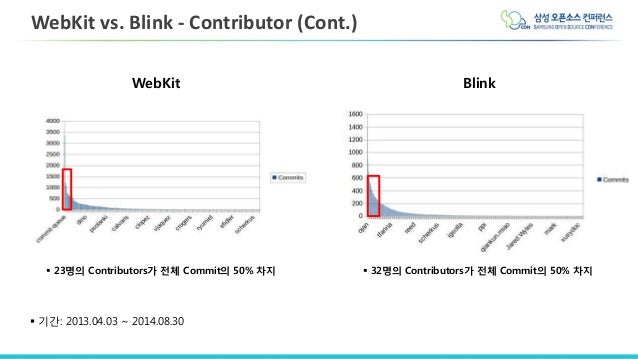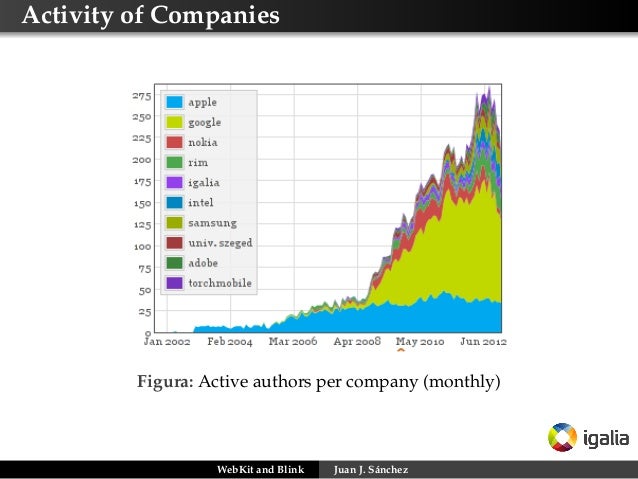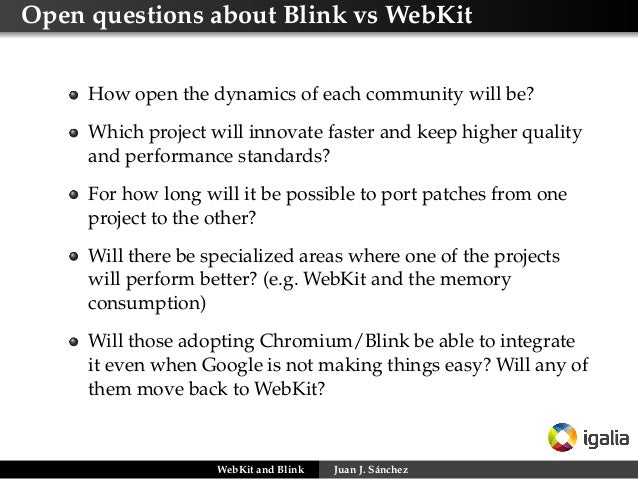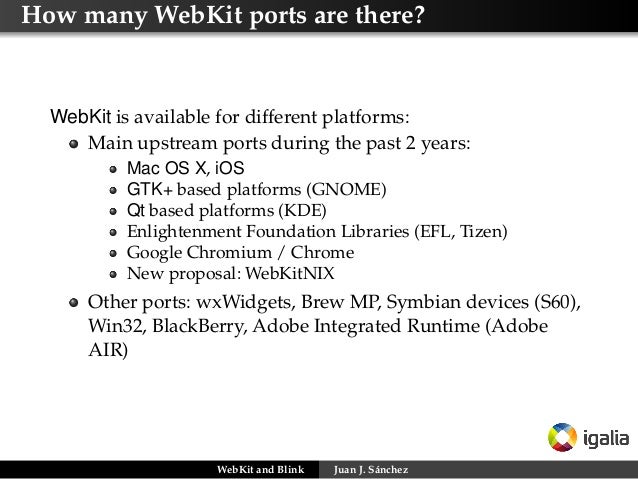

This decision clearly wasn’t made lightly. Komoroske noted that when it comes to working with the other companies involved in the WebKit project, the “collaboration has been fantastic.” The “Collaboration Has Been Fantastic”Īs Google’s VP of Engineering Linus Upson and Alex Komoroske, Google Product Manager for the Open Web Platform team, told me yesterday, the decision to fork WebKit was entirely driven by the engineering teams and solely based on the fact that the engineers felt constrained by the technical complexity of working within the WebKit ecosystem.

It will soon make its way from Chromium to the various Chrome release channels, so users will see the first Blink-powered version of Chrome appear on their desktops, phones and tablets in the near future. As Google describes it, Blink is “an inclusive open source community” and “a new rendering engine based on WebKit” that will, over time, “naturally evolve in different directions.” Blink, Google says, will be all about speed and simplicity. Instant Messengers and their Platform Availability.Google just announced that it is forking WebKit and launching this fork as Blink.Historical market shares of operating systems.Value-Based Classification of Political Ideologies.Election results across Western nations from 1920.Political Parties of Germany: Present and Past.Share of White People in Large Cities in White Cou.International Phonetic Alphabet: The Most Comprehe.Identities in a Globalized World: Introduction.Standard Desktop Environments for Linux and Unix (.Comparison of Linux and Unix Desktop Environments.Operating Systems: An (Almost) Complete Timeline a.Browser Engines: Many failed, few remains (last up.
WEBKIT VS BLINK UPDATE


Hence, with the Explorer lineage and the Opera tor lineage dead in all but name, the most "web diversity" we can hope for is two different browser lines (Navigator-derived Firefox and Konqueror-derived Chromium/Chrome/Opera/Edge/Safari) Today's web technologies are too complex to develop a new browser from scratch. In my opinion, it's only a matter of time until Firefox loses the Second Browser War and we have the same situation as in the 2000s, with one browser (Internet Explorer back then, Chrome now) dominating the web completely and hindering progress and new features. Since Opera and Edge switched to a Chromium (Blink) base, the browser market has effectively split between Blink/Webkit browsers with a 95% market share and Firefox with a 5% market share. Now we are seeing the same all over again, with Netscape's successor Firefox in the same position. Web designers only made sure their websites worked in IE, which hindered more advanced browsers such as Opera from gaining market share. The First Browser War (Internet Explorer vs Netscape) ended with the death of Netscape and the near-total dominance of Internet Explorer.


 0 kommentar(er)
0 kommentar(er)
